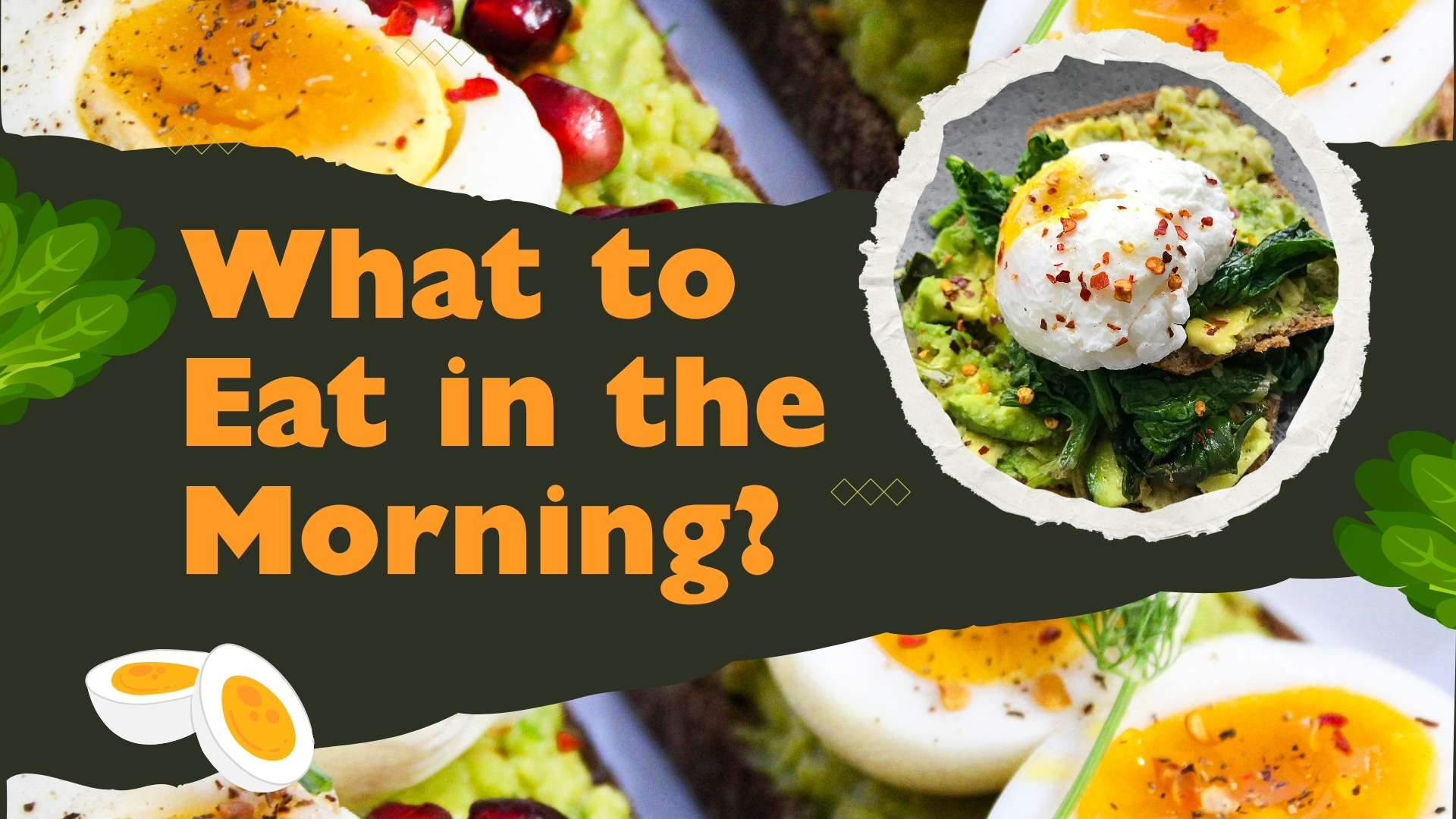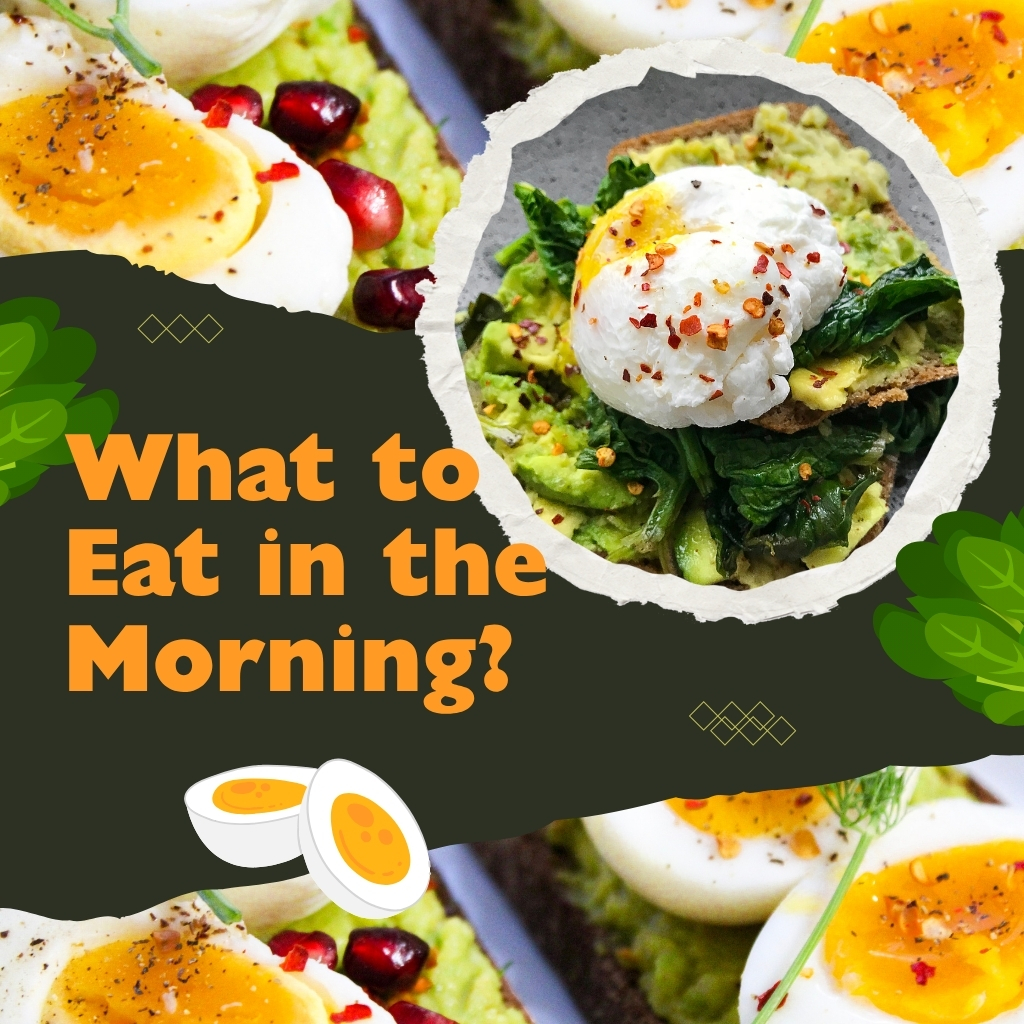Breakfast is often called the most important meal of the day, but with busy schedules and endless options, many people wonder: what should you actually eat in the morning? Whether you’re looking to boost your energy, manage your weight, or simply start your day on the right foot, choosing the right morning foods can make a significant difference in your overall well-being.
In this comprehensive guide, we’ll explore what to eat in the morning, why your breakfast choices matter, and how you can tailor your first meal to your personal health goals. From quick and easy ideas to nutrient-packed recipes, you’ll find everything you need to revamp your morning routine and fuel your day with confidence.
The Science Behind Breakfast: Why Your Morning Meal Matters

The Role of Breakfast in Your Daily Nutrition
Breakfast literally means “breaking the fast” after a night’s sleep. It replenishes your glucose supply, boosts your energy levels, and provides essential nutrients to kickstart your metabolism. Skipping breakfast can lead to sluggishness, poor concentration, and overeating later in the day.
Key Benefits of Eating Breakfast
- Improved concentration and memory
- Better weight management
- Stable blood sugar levels
- Reduced risk of chronic diseases
- Higher intake of essential vitamins and minerals
What to Eat in the Morning: Building a Balanced Breakfast
The Components of a Healthy Breakfast
A nutritious breakfast should include a balance of:
- Complex carbohydrates (for sustained energy)
- Lean protein (for muscle repair and satiety)
- Healthy fats (for brain function and fullness)
- Fiber (for digestion and blood sugar control)
- Vitamins and minerals (for overall health)
Examples of Each Component
- Complex Carbs: Oats, whole-grain bread, quinoa, sweet potatoes
- Protein: Eggs, Greek yogurt, cottage cheese, tofu, nut butter
- Healthy Fats: Avocado, nuts, seeds, olive oil
- Fiber: Berries, apples, chia seeds, flaxseed, leafy greens
- Vitamins/Minerals: Fruits, vegetables, fortified cereals
Top 10 Best Foods to Eat in the Morning
Here’s a comparison table of popular breakfast foods, their benefits, and how they fit into a healthy morning meal:
| Food | Benefits | How to Eat It |
|---|---|---|
| Oatmeal | High fiber, lowers cholesterol | Hot porridge, overnight oats |
| Eggs | High protein, nutrient-dense | Boiled, scrambled, omelet |
| Greek Yogurt | Probiotics, high protein | With fruit, granola, honey |
| Whole-Grain Toast | Complex carbs, fiber | With avocado, nut butter, eggs |
| Berries | Antioxidants, vitamins, fiber | In smoothies, yogurt, oatmeal |
| Avocado | Healthy fats, potassium | On toast, in smoothies, salads |
| Cottage Cheese | High protein, calcium | With fruit, nuts, seeds |
| Nut Butters | Healthy fats, protein | On toast, in smoothies, oatmeal |
| Chia Seeds | Omega-3s, fiber, protein | In pudding, smoothies, oatmeal |
| Bananas | Potassium, quick energy | On cereal, toast, smoothies |
Breakfast Ideas for Every Lifestyle
Quick and Easy Breakfasts for Busy Mornings
- Overnight oats: Mix oats, milk, chia seeds, and fruit in a jar. Refrigerate overnight.
- Greek yogurt parfait: Layer yogurt, berries, and granola.
- Nut butter toast: Whole-grain bread with almond or peanut butter and banana slices.
- Smoothie: Blend spinach, banana, protein powder, and almond milk.
High-Protein Breakfasts
- Egg muffins: Whisk eggs, veggies, and cheese, bake in muffin tins.
- Cottage cheese bowl: Top with berries, nuts, and honey.
- Protein pancakes: Use oats, eggs, and protein powder.
Plant-Based/Vegan Breakfasts
- Tofu scramble: Sauté crumbled tofu with veggies and spices.
- Chia pudding: Mix chia seeds with plant milk, refrigerate overnight, top with fruit.
- Avocado toast: Whole-grain bread with smashed avocado, tomato, and seeds.
Low-Carb/Keto Breakfasts
- Egg and spinach omelet: Add cheese and avocado.
- Greek yogurt with nuts: Use unsweetened yogurt and low-carb nuts.
- Breakfast salad: Greens, eggs, avocado, olive oil.
What to Avoid Eating in the Morning

Not all breakfast foods are created equal. Some options can spike your blood sugar, leave you feeling hungry, or provide little nutritional value.
Foods to Limit or Avoid
- Sugary cereals: High in sugar, low in fiber.
- Pastries and donuts: High in refined carbs and unhealthy fats.
- Processed meats: Bacon and sausage are high in sodium and saturated fat.
- Flavored yogurts: Often loaded with added sugars.
- Fruit juices: Lack fiber, high in sugar.
How to Personalize Your Morning Meal
Consider Your Goals
- For weight loss: Focus on high-protein, high-fiber foods to keep you full.
- For energy: Include complex carbs and healthy fats.
- For muscle gain: Prioritize protein-rich options.
- For digestive health: Add probiotic foods and fiber.
Special Diets and Allergies
- Gluten-free: Choose gluten-free oats, bread, and grains.
- Dairy-free: Use plant-based milks and yogurts.
- Nut-free: Opt for seeds (sunflower, pumpkin) instead of nuts.
Sample Breakfast Meal Plans
Balanced Breakfast (General Health)
- Scrambled eggs with spinach and tomatoes
- Whole-grain toast
- Fresh orange slices
High-Protein Breakfast (Muscle Building)
- Greek yogurt with chia seeds and berries
- Hard-boiled eggs
- Almond butter on rice cakes
Plant-Based Breakfast (Vegan)
- Oatmeal with almond milk, flaxseed, and blueberries
- Sliced apple with sunflower seed butter
FAQ: What to Eat in the Morning
What is the healthiest thing to eat for breakfast?
A combination of protein (like eggs or Greek yogurt), complex carbs (like oats or whole-grain bread), healthy fats (like avocado or nuts), and fiber (like berries or chia seeds) is ideal.
Is it okay to skip breakfast?
Some people thrive on intermittent fasting, but many studies suggest that eating breakfast supports better energy, focus, and nutrient intake. Listen to your body and choose what works best for you.
Can I eat fruit alone for breakfast?
Fruit is healthy but lacks protein and fat, which help keep you full. Pair fruit with yogurt, nuts, or whole grains for a more balanced meal.
What should I eat in the morning to lose weight?
Focus on high-protein, high-fiber foods like eggs, Greek yogurt, oatmeal, and berries. Avoid sugary cereals and pastries.
Are smoothies a good breakfast option?
Yes, if they contain a balance of protein, healthy fats, and fiber. Avoid smoothies that are mostly fruit juice or added sugars.
How soon after waking up should I eat breakfast?
There’s no strict rule, but many people benefit from eating within 1–2 hours of waking to replenish energy and stabilize blood sugar.
Conclusion: Start Your Day Right with the Best Breakfast Choices
Choosing what to eat in the morning sets the tone for your entire day. A balanced breakfast fuels your body and mind, supports your health goals, and helps you avoid energy crashes and cravings later on. Whether you prefer a quick smoothie, a hearty bowl of oatmeal, or a savory egg dish, the key is to include a mix of protein, complex carbs, healthy fats, and fiber.
Remember, the best breakfast is one that fits your lifestyle, tastes, and nutritional needs. Experiment with different options, listen to your body, and enjoy the benefits of a nourishing start to every day.
